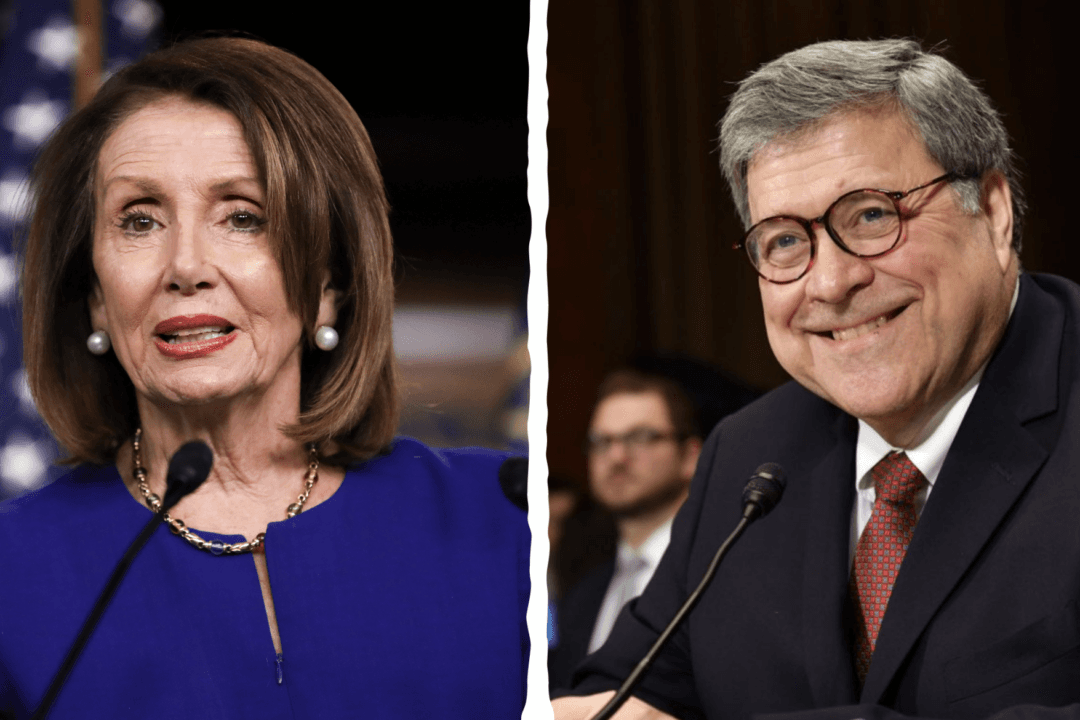Attorney General William Barr uttered a few words that made headlines on Wednesday; he jokingly asked Speaker Nancy Pelosi (D-Calif.) whether she had brought her handcuffs, alluding to the Democrats’ calls for his arrest.
Barr approached Pelosi at the 38th Annual National Peace Officers’ Memorial Service on the West Front of the Capitol on Wednesday morning, May 15.




